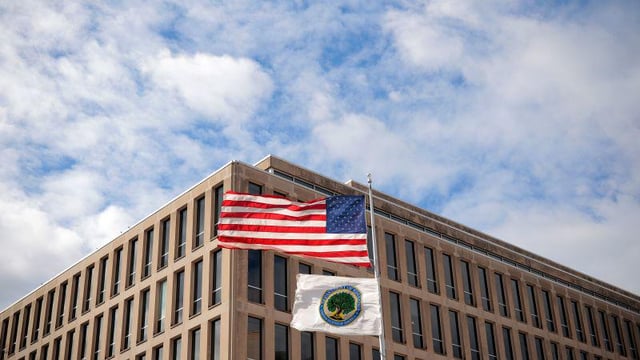Government Overreach? Judge Rules Email Edits Blaming Democrats Violated First Amendment
Imagine you’re a federal employee, diligently working to serve the public. Now, imagine your emails are being secretly altered by your superiors to push a political agenda. Sounds like something out of a dystopian novel, right? Well, according to a recent court ruling, this very scenario played out, and a judge has declared it a violation of the First Amendment rights of those employees. This case raises serious questions about government overreach, freedom of speech, and the blurring lines between policy and propaganda.
The Case: Email Manipulation and Political Messaging
The controversy stems from the 2025 government shutdown. According to CNN, during this period, several federal employees discovered that their outgoing emails were being edited without their knowledge or consent. The changes added language that explicitly blamed Democrats for the shutdown, framing the situation in a partisan light. Employees found themselves unwittingly disseminating a political message they did not endorse, and in some cases, actively disagreed with.
This manipulation was allegedly orchestrated by higher-ups within the administration, aiming to control the narrative surrounding the shutdown. The altered emails were often sent to constituents, stakeholders, and even other government agencies. The goal, it seems, was to shift public opinion and pressure Democrats to concede to the administration’s demands. But at what cost?
The First Amendment Argument: Freedom of Speech and Government Control
The employees affected by the email edits argued that this practice violated their First Amendment rights, specifically their freedom of speech and association. They contended that the government was compelling them to express a political message against their will. The government, on the other hand, likely argued that it had the right to control official communications, especially during a crisis like a government shutdown.
The judge, however, sided with the employees. In the ruling, the judge stated that the government’s actions constituted a form of compelled speech, which is generally protected under the First Amendment. The judge emphasized that while the government has legitimate interests in managing its communications, it cannot do so by forcing its employees to parrot political viewpoints they don’t hold. This is especially true when those views are used to assign blame in a partisan political conflict.
Why This Matters: Implications for Government Employees and the Public
This ruling has significant implications for both government employees and the public. For government employees, it sends a clear message that they have a right to express their own views, even within the context of their official duties. It also provides a legal basis for challenging similar instances of government censorship or manipulation.
For the public, this case underscores the importance of transparency and accountability in government communications. When the government uses its power to control the flow of information, it undermines the public’s ability to make informed decisions. Edited emails erode trust in the government and can be seen as a form of propaganda.
The Road Ahead: Potential Appeals and Long-Term Impact
It’s likely that the government will appeal this ruling. The case raises complex legal questions about the balance between government authority and individual rights. An appeal could potentially overturn the decision, or it could lead to a Supreme Court case that sets a new precedent for government employee speech.
Regardless of the outcome of any appeals, this case has already had a significant impact. It has brought attention to the issue of government manipulation of information and has empowered government employees to speak out against perceived abuses. It serves as a reminder that even within the confines of government service, the principles of free speech and individual liberty must be protected. This landmark case emphasizes that government cannot force its employees to become unwilling participants in a political campaign, protecting the rights of individuals and fostering a more transparent and accountable government.
